Oracy and Respect
It is widely acknowledged that oral literacy is an integral part of student learning and remains a key focus not only of our curriculum but also in relation to the BMS themes of...
Filter by Category
Filter by Author

























































































































































































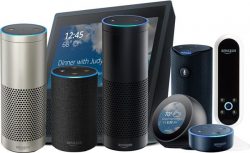
It is widely acknowledged that oral literacy is an integral part of student learning and remains a key focus not only of our curriculum but also in relation to the BMS themes of...
Posted by Claire Till
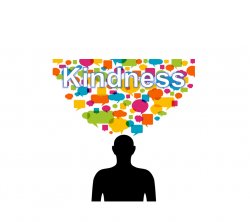
Posted by Sara Ash - Deputy Headteacher

Posted by Danielle Bowe
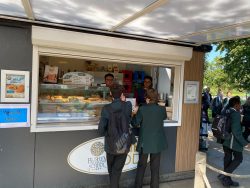
I would like to thank all our amazing students for accepting and fitting in to the new routines that we have had to establish at the start of this autumn term with the ongoing...
Posted by Jeremy Turner
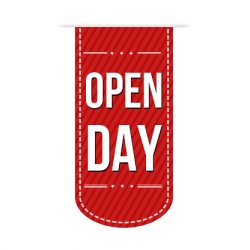
Posted by Sara Ash - Deputy Headteacher
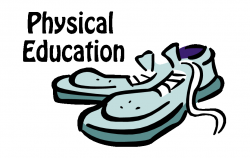
Although the annual 3 day summer fun course had to be cancelled we were still able to run a 1 day event at the end of August. The event is designed to provide a fun and welcoming...
Posted by Ashley Cartledge

The start of a new term sees the start of a new programme of sport and physical activity practices, clubs and competitive fixtures. Last year many of our students took the...
Posted by Ashley Cartledge
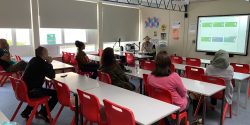
The highlight of the evening for most of the Year 7 parents was meeting their children’s Character Development Coaches or CDCs. These dedicated and caring staff will see their...
Posted by Jeremy Turner
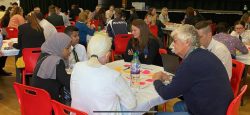
One of the key documents in the journey of improvement in any excellent school is the School Improvement Plan or SIP. Ideally the document is shaped and owned by all stakeholders...
Posted by Jeremy Turner
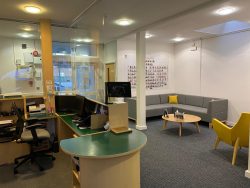
As a school we do not stand still and are always looking for ways to improve the environment for learning at Bushey Meads. This year we wanted to refurbish and extend our busy...
Posted by Jeremy Turner
It is widely acknowledged that oral literacy is an integral part of student learning and remains a key focus not only of our curriculum but also in relation to the BMS themes of respect and community. Only recently there was an interesting piece of research highlighting the impact of literacy both in terms of what we say and what is heard. This research examined the influence that technology, in the form of smart speakers has on children’s way of speaking to women. With 42% of children aged 9-16 years old utilising the seemingly limitless knowledge of such devices the research provides an insight into how our children are learning about the concept of respect.
While respect is seen as having due regard for other feelings smart devices within our homes are teaching children the opposite. Indeed, the researchers found that through making demands, noticeable in their absence of a please or thank you to such technological devises children are being socialised in these ‘blunt’ patterns of language.
The language that when applied in a different context is often perceived as rude and insulting. Further adding to this learning process is the fact that most if not all smart devices have a women’s voice thereby encouraging children to transfer the demanding speech structure onto female figures within their life. Teaching children to recognise orality in context is one of the many challenges that all parents, careers, and school face. Yet oral literacy is central to promoting respect and it is through treating oneself and others with the respect that learning improves. It is therefore with A Mind to Be Kind that we welcomed students into school this term for it is an attitude that influences respect and the way in which we express it through our grasp of oral literacy.
As Clay Christensen (How Will You Measure Your Life, 2010) said “If your attitude is such that you can only learn from some people, your learning opportunities will be very limited. But if you have a humble eagerness to learn something from everybody, your learning opportunities will be unlimited.”
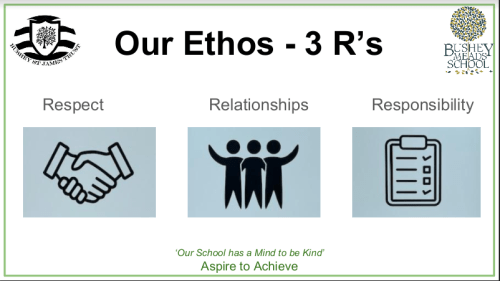
Dear Parents/ Carers As part of our ongoing commitment to improve in all areas of Bushey Meads School, and as part of our strategic intent of ‘Embedding Greatness’ through...
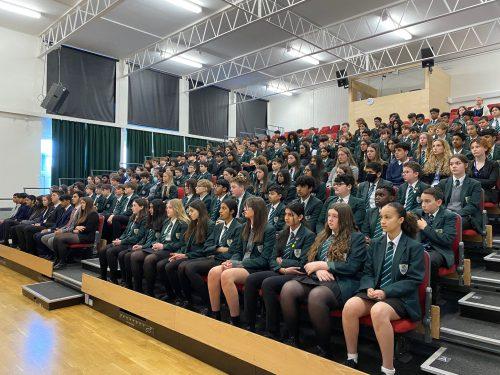
Elm House assembly led by our inspiring Head of House Mr Cox focussed on the first of our 3Rs – RESPECT. Mr Cox encouraged the students to think about what our world would...